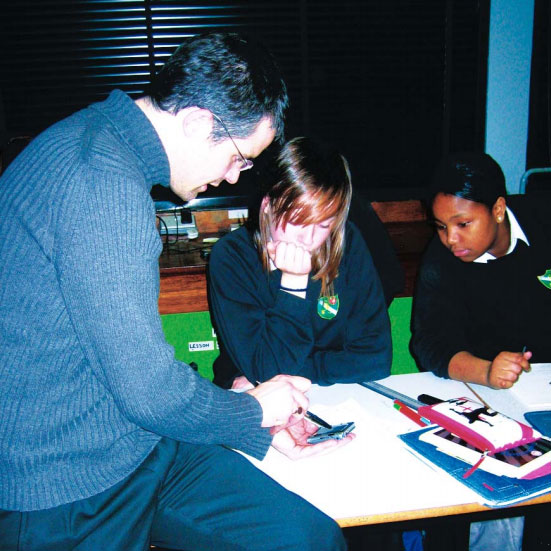
Well-trained teaching assistants are a key resource in many schools and are used very effectively. But without the proper training and supervision, teaching assistants could be doing more harm than good.
There has been a huge expansion of support staff in schools since 2005. But a new government-funded study suggests that pupils who receive help from teaching assistants are making less progress than classmates of similar ability.
Many teaching assistants are a key resource in schools. They relieve teacher workloads and can help improve class behaviour. Most are employed with specific responsibilities to work with individual children with special educational needs, providing much-needed extra support. Others are given more general classroom responsibilities.
Moreover, teaching assistants are not just part of the staff, but are part of a team. The assistance they give teachers and pupils leads to reduced teacher workloads and greater job satisfaction.
So why does a new report from the Institute of Education show that primary and secondary pupils supported by teaching assistants make less progress on average than those of similar ability, social class and gender who do not receive such assistance? In fact, the study shows the more support they receive, the fewer gains they make, which is an incredible claim.
Teacher contact
The problem is that support staff tend to look after the pupils most in need, reducing their contact with the qualified teacher.
Lead researcher of the report, Professor Peter Blatchford, said the results could not be explained by the lower attainment, special educational needs, family backgrounds or behavioural problems of those pupils who had help from teaching assistants because those factors had been accounted for.
Equally, the lack of progress is not something that we can blame on the teaching assistants themselves.
The problem is the way in which support staff are deployed and the way in which they are managed.
The main explanation seems to be that support staff are normally assigned to the pupils who require the most help – those with special educational needs or those with the lowest attainment. But the researchers found that the more time pupils spend with TAs, the less time they spend being taught by the teacher. As a result, pupils with the most need can become separated from the teacher and the curriculum.
Support staff also tend to have less training and a lower level of education than teachers. About two-thirds of the support staff in the study had not been educated beyond GCSE level. In effect, it’s the equivalent of foisting bad teachers on poorly performing pupils, with an inevitable outcome.
Conversely, there is clear evidence that there is a positive effect on pupil’s progress where teaching assistants are effectively trained to deliver specific support programmes, alongside well-planned lessons.
Ultimately, schools need to be clear on the fact that teaching assistants are not substitutes for teachers, but what they can do, given the right training and support, is help children with special needs to get the most out of school.
While teaching assistants are extremely dedicated – many work extra hours without pay – their routine deployment to pupils most in need seems to be the heart of the problem. This is not the fault of support staff. Policymakers and school staff need to rethink the way teaching assistants are used in classrooms and prepared for the tasks that teachers give them to maximise their help to teachers and pupils.
Otherwise, despite the best intentions of government to get excellent teachers into schools through tough new recruitment policies, training and huge cash injections, it will all be undermined by the growing army of support assistants who end up at the sharp end of pupil contact.
Report recommendations:
Conditions of employment:
- Though there are high levels of job satisfaction, there is a need for careful consideration, particularly of extra hours worked by support staff and conditions of employment, so that support staff are appropriately rewarded.
- More could be done to address the conditions of employment (e.g., supervision and line management) of support staff in secondary schools.
Preparedness:
- More needs to be done to prepare newly-qualified and in-service teachers with the necessary skills and preparation to help them manage the growing number of support staff with whom they work.
- More needs to be done to prepare, particularly classroom based, support staff for their role in schools, especially for the now common, pedagogical, instructional role with pupils.
- More time should be available for joint planning and feedback, and recommendations should also be made concerning ways in which TAs can be deployed effectively.
The deployment of support staff: - Schools should examine the deployment of classroom or pupil based support staff to ensure that they do not routinely support lower attaining pupils and pupils with SEN.
- Pupils in most need should get more not less of a teacher’s time.
- Teachers should take responsibility for the lesson-by-lesson curriculum and pedagogical planning for all pupils in the class, including those pupils being supported by support staff.
The practice of support staff:
- More work on conceptualising the pedagogical role of TAs in their everyday interactions with pupils is required and needs to be built into professional development, school deployment decisions and the management, support and monitoring of support staff.
The impact of support staff:
- Schools need to explicitly and rigorously set out the quality of provision and support in relation to anticipated academic outcomes.
- More research is needed which seeks to examine effects not just of the amount of support (as in DISS), but particular facets of the ‘Wider Pedagogical Role’ of support staff on pupil learning, behaviour and attitudes to learning.